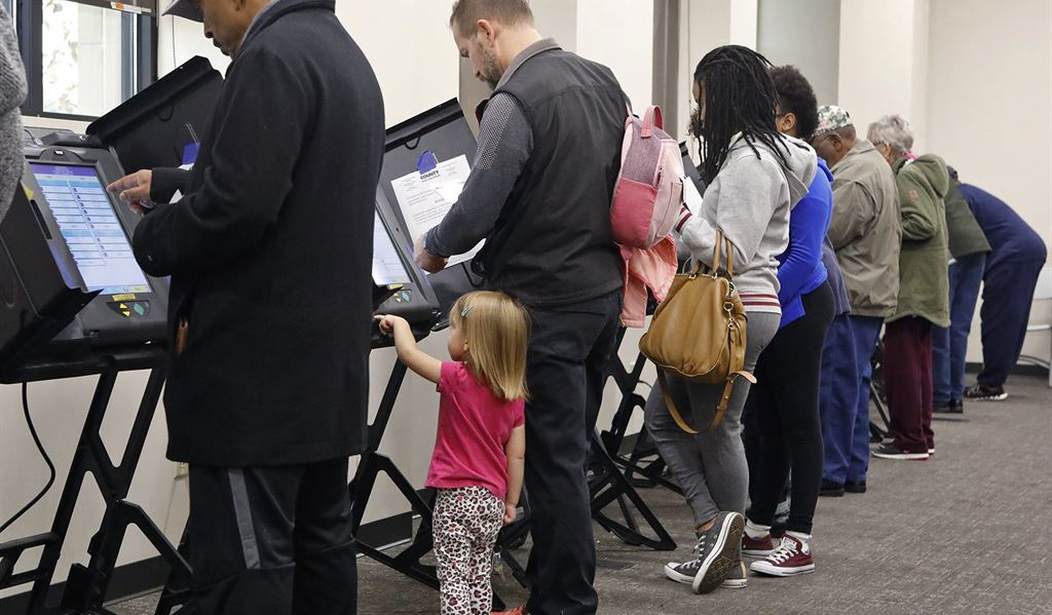A headline from the Tuesday edition of The Baltimore Sun reveals a great deal about an effort that’s been brewing since 2007 and now counts 11 states and the District of Columbia as adopters:
“Maryland bill would aim to speed up demise of the Electoral College”
The piece refers to a the National Popular Vote Interstate Compact (NPVIC), an initiative introduced in all 50 states, that would assign a state’s electoral college vote to whichever candidate was the winner of the national popular vote, even if a majority of the voters in that state chose the other candidate.
The Maryland bill, sponsored by Democratic state Senator Bill Ferguson, would speed up the process of applying electoral votes to the national popular vote winner, cementing Maryland’s preference for a compact they entered into more than a decade ago.
Ferguson’s bill, which is scheduled for a committee hearing next week, would authorize Maryland's 10 Electoral College votes to go to the winner of the national popular vote for president — instead of the winner of Maryland’s votes — provided a red state with the same number of Electoral College votes (in Maryland’s case, Wisconsin) agrees to do the same.
“This is about expediting Maryland moving toward the popular vote,” Ferguson said. “It breaks the political logjam through a pairing strategy. All of those states that sign up for the pairing strategy will send their votes to the winner of the popular vote.”
The movement in Maryland comes on the heels of Colorado NPVIC bill that cleared the state Senate in early February (without a single Republican vote) mandating Colorado join the compact assigning electoral votes to popular vote winners. If it passes the House, Colorado will join Maryland, New Jersey, Illinois, Hawaii, Washington, Massachusetts, D.C., Vermont, California, Rhode Island, New York, and Connecticut in adopting the measure.
Recommended
In debate prior to passing the Senate bill, Colorado constitutional scholars outlined why the measure is very likely unconstitutional.
Jenna Ellis, a constitutional law attorney who works for Colorado Family Action, gave the committee three reasons why she thinks the bill is unconstitutional.
The first was that it would violate a part of the U.S. Constitution called the compact clause, which says states can’t enter into agreements with each other without federal approval. Second, the bill would remake the Electoral College without a constitutional amendment. And third, it could impact the part of the 12th Amendment that gives Congress the power to decide the presidency if no candidate gets the 270 votes required to win the Electoral College.
Trent England of a group called Save Our States also presented testimony arguing the Colorado bill was problematic, saying a major concern is that during presidential elections there is no single, federally verified, national popular vote total.
Senate Bill 19-042 directs the chief election official of each member state to determine the number of votes cast for each candidate in all 50 states and the District of Columbia and then add all of those together themselves.
“You’re asking for 51 different certifications,” England said.
That, in his opinion, could get messy fast — especially because vote counting often goes on for days and even weeks after an election. And it’s possible states would come up with different numbers for the national popular vote total.
The electoral college was established in the Constitution as a process that represented a compromise between election of a president by Congressional vote and by qualified American voters. Electors in most states, which are apportioned based on a population, cast their vote for whichever candidate receives the most votes in their state, which theoretically means a candidate could win the popular vote but not win the electoral college vote or the presidential election, an unverified claim Hillary Clinton made following her 2016 loss.

























Join the conversation as a VIP Member